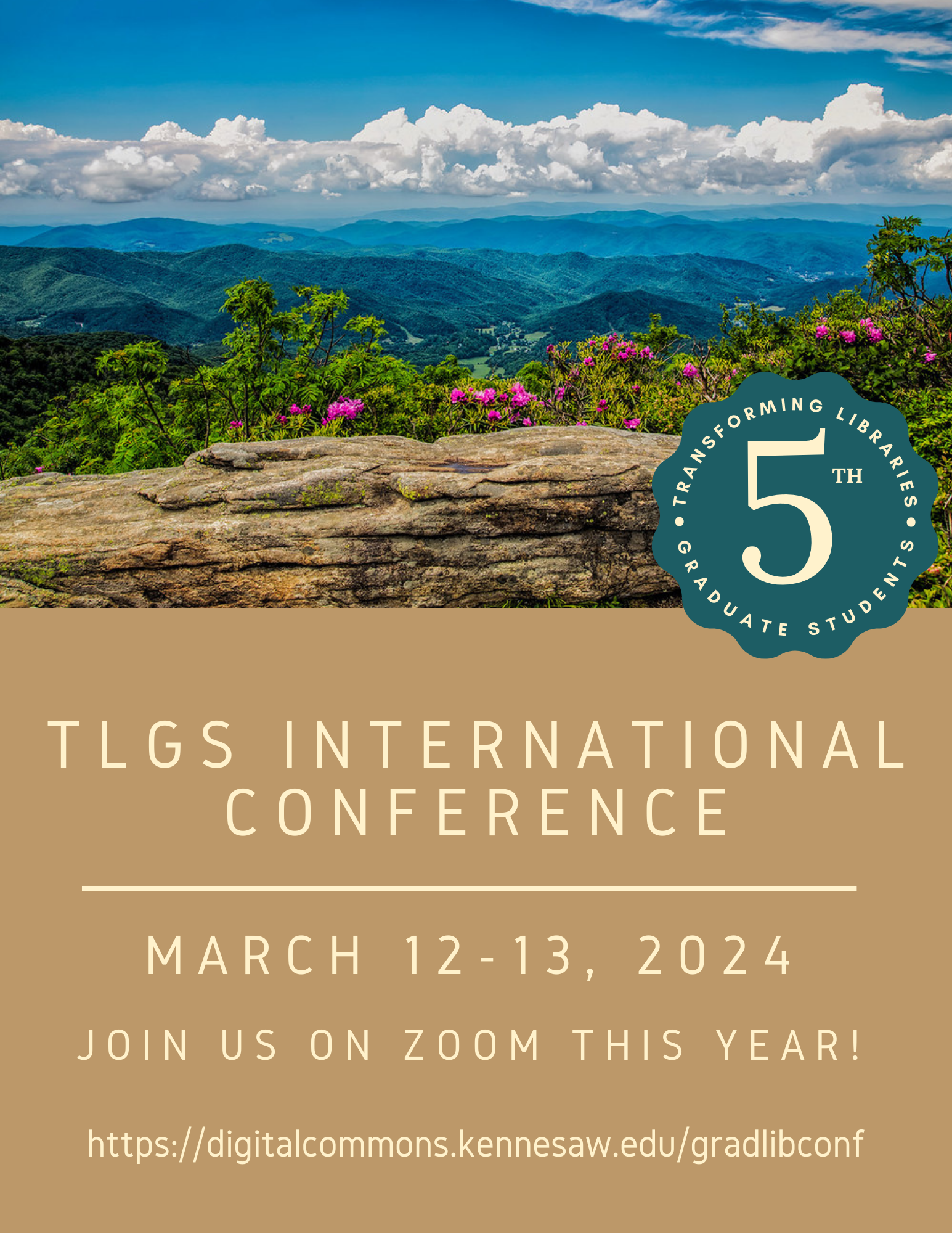Start Date
3-12-2024 3:00 PM
End Date
3-12-2024 4:00 PM
Keywords
workshops, engagement, question-asking, virtual, in-person
Description of Proposal
Academic libraries frequently offer workshops to graduate students and faculty as a way to develop their information literacy skills, including building skills with citation managers, literature review searching, and data management. In many academic libraries in-person delivery of workshops was the norm prior to the COVID-19 global pandemic, but during the pandemic online workshops were the only option. Workshop participants now appreciate being able to choose between the modality that works for them. In our library, we now regularly offer most workshops in both in-person and synchronous online modalities. This change in how we offer workshops allows us the opportunity to critically evaluate how we engage participants in both formats. We conducted a study to examine potential differences in participant engagement in online vs. in-person library workshops by observing participant question-asking behaviors. Our goal is to better inform the pedagogical approaches librarians use in both of these instructional formats.
Creating an environment in which students can develop question-asking abilities is a critical part of learner-centered teaching. Pedrosa de Jesus and collaborators (2003) argue that generating questions is key in the learning process because it improves learning and information retention. Asking questions also increases student interest and engagement.
Question-asking behaviors can be used as an indicator of student engagement, but most of the literature on question-asking behaviors, including studies of online classes, describes term-long, credit courses where students have clear external motivators to ask questions. In addition, in term-long classes, students can develop a relationship with both the instructor and their peers, providing the emotional support often needed to ask questions. Most workshop settings do not include the same external motivation factors or the time needed to develop trusting relationships in the classroom.
We collected participant question-asking information in 12 workshop sessions across two terms. The workshops covered three topic areas. Each of the workshops had an iteration that was offered synchronously online and another offered in person. Data collected included information about the questions, as well as the workshop context. Questions were coded using the question classification system described by Pedrosa de Jesus and collaborators’ (2003). Data was analyzed to determine potential differences by workshop logistics, instructor practices, and question types.
We will share our findings, including any differences in question-asking behaviors. We will also discuss pedagogical recommendations for creating question-asking contexts in both in-person and online instructional settings.
References
Pedrosa de Jesus, H., Teixeira-Dias, J. J. C., & Watts, M. (2003). Questions of chemistry. International Journal of Science Education, 25(8), 1015–1034. https://doi.org/10.1080/09500690305022
Does Anyone Have Any Questions? Encouraging Question-Asking Behaviors in Online and In-Person Graduate Student & Faculty Workshops
Academic libraries frequently offer workshops to graduate students and faculty as a way to develop their information literacy skills, including building skills with citation managers, literature review searching, and data management. In many academic libraries in-person delivery of workshops was the norm prior to the COVID-19 global pandemic, but during the pandemic online workshops were the only option. Workshop participants now appreciate being able to choose between the modality that works for them. In our library, we now regularly offer most workshops in both in-person and synchronous online modalities. This change in how we offer workshops allows us the opportunity to critically evaluate how we engage participants in both formats. We conducted a study to examine potential differences in participant engagement in online vs. in-person library workshops by observing participant question-asking behaviors. Our goal is to better inform the pedagogical approaches librarians use in both of these instructional formats.
Creating an environment in which students can develop question-asking abilities is a critical part of learner-centered teaching. Pedrosa de Jesus and collaborators (2003) argue that generating questions is key in the learning process because it improves learning and information retention. Asking questions also increases student interest and engagement.
Question-asking behaviors can be used as an indicator of student engagement, but most of the literature on question-asking behaviors, including studies of online classes, describes term-long, credit courses where students have clear external motivators to ask questions. In addition, in term-long classes, students can develop a relationship with both the instructor and their peers, providing the emotional support often needed to ask questions. Most workshop settings do not include the same external motivation factors or the time needed to develop trusting relationships in the classroom.
We collected participant question-asking information in 12 workshop sessions across two terms. The workshops covered three topic areas. Each of the workshops had an iteration that was offered synchronously online and another offered in person. Data collected included information about the questions, as well as the workshop context. Questions were coded using the question classification system described by Pedrosa de Jesus and collaborators’ (2003). Data was analyzed to determine potential differences by workshop logistics, instructor practices, and question types.
We will share our findings, including any differences in question-asking behaviors. We will also discuss pedagogical recommendations for creating question-asking contexts in both in-person and online instructional settings.
References
Pedrosa de Jesus, H., Teixeira-Dias, J. J. C., & Watts, M. (2003). Questions of chemistry. International Journal of Science Education, 25(8), 1015–1034. https://doi.org/10.1080/09500690305022




What takeaways will attendees learn from your session?
An in-depth understanding of pedagogical factors that influence participant engagement in the form of question-asking.
Strategies for encouraging question-asking behaviors in both synchronous online and in-person workshops.
Strategies for instructors to stay engaged while facilitating online workshops.